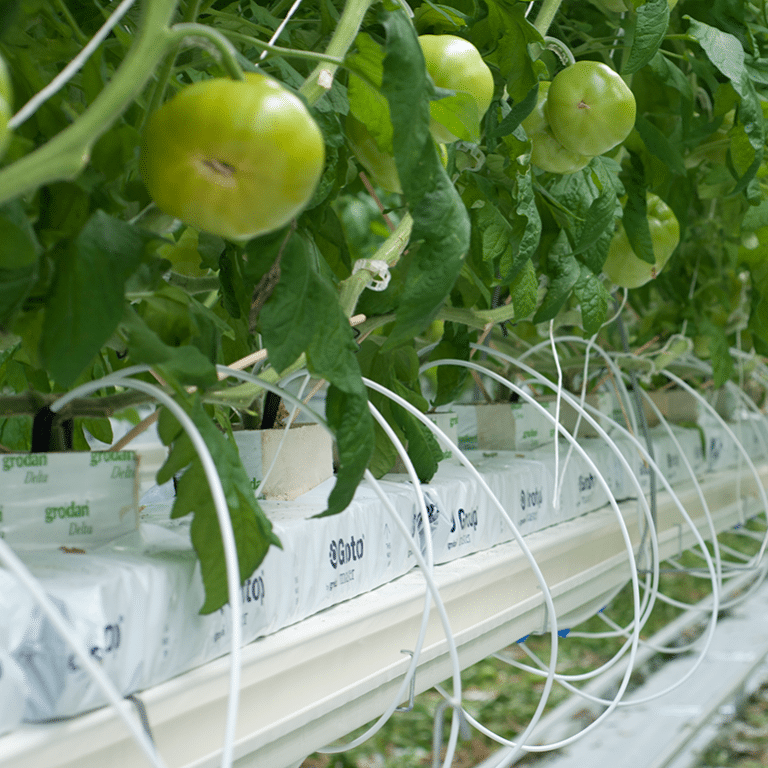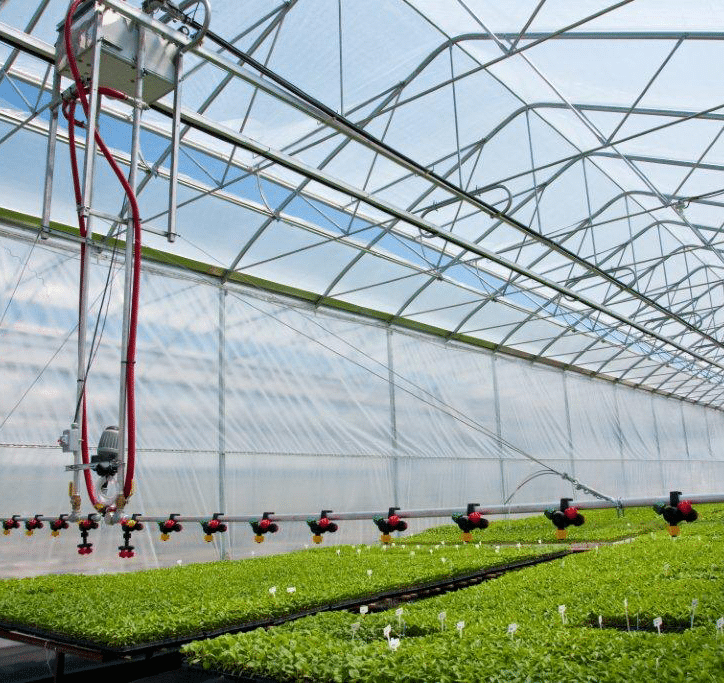Organic farming requires precision, control, and consistency—qualities that a commercial greenhouse for organic production is uniquely designed to deliver. By growing in a commercial greenhouse, organic producers can better manage pests, diseases, soil health, and climate, all while reducing the need for synthetic inputs.
Whether you’re producing organic vegetables, herbs, berries, or seedlings, a commercial greenhouse helps you meet certification standards while boosting yield and profitability.
The growing organic demand
In Canada, there has been a significant and steady increase in the sale of organic products and beverages. According to a study available on the Agri-Réseau website (in French only), sales increased from $2 billion in 2008 to $3 billion in 2012. Canadian consumers can’t get enough of organic products, with more than 58% purchasing them every week. That’s why more and more producers are starting to produce organic crops or transition from traditional crops to greenhouse organic crops. In both cases, Agrisys experts are here to bring your project to life
Protection against diseases in organic crops
Greenhouses give producers the chance to create their own growing environment and therefore manage every aspect of production. Greenhouses also protect crops from a host of pests and diseases, extreme weather conditions and outdoor pollution such as pesticide drift.

Commercial greenhouse for organic production techniques
Water treatment systems
Organic production is designed to respect the environment. First and foremost, it relies on organic waste and natural minerals to provide adequate nutrition to crops. Effective and efficient systems can be installed easily in a greenhouse, which facilitates the supply of nutrients and water recycling all while allowing for improved irrigation management. A great example is Vialux UV disinfection, one of our water treatment systems successfully established at Serres Royales. The system consists of small pipes installed near the roots of the plants, providing adequate water to ensure perfectly adapted and localized irrigation. Any water that isn’t absorbed by the plant is removed by a gutter system and treated for reuse, and all water management is computer automated. The greenhouse also provides sheltered areas for all equipment needed to recycle nutrients and water.
Protection against external elements
Organic producers can’t use traditional chemical pesticides, which can be a challenge when producing field crops. Commercial greenhouse for organic production provides greater protection against external elements like pollution, diseases and pests, allowing the producer to use little to no pesticides.
Above-ground greenhouse crops
In Canada, producers can choose between above-ground or soil crops. Some soils are not rich enough to comply with, or are incompatible with, organic regulations, making above-ground production inevitable. Commercial greenhouse for organic productionmake it easy to adapt to such situations, allowing producers to grow healthy and productive crops while respecting organic production standards.
Greenhouse equipment
Greenhouses ensure greater productivity of plants and the possibility to produce all year round. The waterproof structure allows for the installation of a CO2 enrichment system that improves crop quality and productivity. Booster lighting and a heating system can also be installed to boost annual production.

Key Benefits for Organic Growers
1. Better Climate Control for Healthier Crops
A greenhouse allows you to regulate temperature, humidity, and light—all critical factors for organic crops that can’t rely on chemical shortcuts. Controlled environments help you:
Prevent fungal outbreaks
Extend growing seasons
Improve plant uniformity and quality
2. Natural Pest Management
By enclosing your crops, you limit exposure to external pest pressure. This gives you more control over biological control strategies such as:
Beneficial insect release (e.g., ladybugs, parasitic wasps)
Insect netting and physical barriers
Crop rotation within modular greenhouses
3. Reduced Risk of Contamination
Outdoor organic crops can easily be affected by spray drift, animal intrusion, or runoff from neighboring fields. Commercial greenhouse for organic production offer:
Isolation from external contaminants
Better control over irrigation water quality
Cleaner handling zones for harvest and packaging
4. Optimized Use of Organic Inputs
Commercial greenhouse for organic production systems allow precise dosing and targeted application of organic-approved fertilizers, compost teas, and microbial inoculants. You get:
Lower input costs
Greater nutrient efficiency
Less leaching or runoff
Organic Certification Made Easier
Many commercial organic producers are choosing greenhouses not only for productivity—but for easier certification compliance. With structures like those offered by Harnois, it’s easier to meet requirements related to:
Soil and substrate management
Crop protection measures
Buffer zones and traceability
Sanitation and post-harvest handling
Let’s Grow Organic, Smarter
At Harnois, we understand the challenges and opportunities of organic production. Our Commercial greenhouse for organic production are engineered to help you meet organic standards while maximizing your crop performance—season after season.
Talk to our team today to design a greenhouse that supports your organic growing goals.
